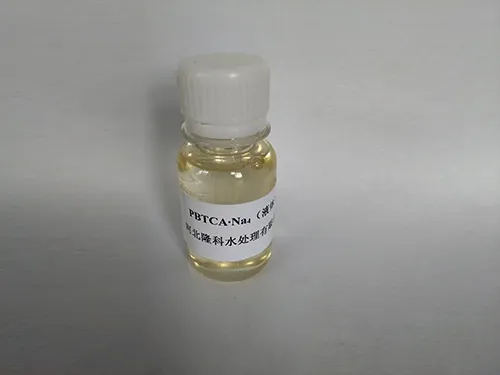Organic Phosphonates: Building Blocks for Sustainable Chemistry
In the pursuit of sustainable solutions in industrial and environmental chemistry, organic phosphonates have become essential tools. Known for their versatility, stability, and environmentally friendly properties, these compounds play a critical role in industries ranging from water treatment to agriculture and beyond. Among the most commonly used organophosphonates are HEDP Na2 and HEDP Na4, each offering unique advantages that support eco-conscious applications and effective performance.

Understanding Organic Phosphonates in Modern Chemistry
Organic phosphonates belong to a specialized group of organophosphorus compounds characterized by their remarkable ability to chelate metal ions and resist degradation. These properties make them indispensable in applications such as preventing scale formation and corrosion in industrial systems like boilers, cooling towers, and pipelines.
Compared to traditional chemicals, organophosphonates exhibit superior performance in a range of pH conditions, ensuring durability and efficiency in both acidic and alkaline environments. Their biodegradability and lower toxicity further position them as sustainable options, aligning with global efforts to reduce environmental impact in industrial processes.
The Versatility of HEDP Na2 in Industrial Applications
One of the most widely utilized organic phosphonates, HEDP Na2, also known as disodium salt, has proven to be a highly effective solution in managing scale and corrosion. It is particularly valuable in water treatment systems where high thermal and chemical stability is required.
HEDP Na2 is commonly used as a chelating agent in detergents and cleaning products. Its ability to bind metal ions improves cleaning efficiency, making it a preferred ingredient in both industrial and household formulations. Additionally, its solubility allows seamless integration into a variety of chemical solutions, enhancing the overall functionality of end products.
In industrial operations, HEDP Na2 significantly reduces maintenance costs by preventing buildup and ensuring the efficient functioning of equipment. This contributes to a longer operational life span for machinery, which is critical for industries relying on continuous processes.
HEDP Na4: A High-Performance Alternative
For more demanding applications requiring enhanced chelation properties, HEDP Na4—the tetrasodium salt variant—is the ideal choice. This compound demonstrates superior stability under high-alkaline conditions, making it particularly useful in specialized industries such as textiles, paper production, and agriculture.
In textiles, HEDP Na4 prevents discoloration by sequestering metal ions that may otherwise interfere with dyeing processes. Similarly, in agriculture, this compound enhances the efficacy of fertilizers by chelating metal ions in the soil, ensuring improved nutrient availability for crops. This dual benefit of performance and sustainability reinforces its role in supporting environmentally conscious agricultural practices.
Organophosphonates in Water Treatment
The water treatment industry relies heavily on the unique properties of organophosphonates to ensure efficiency and sustainability. Compounds like HEDP Na2 and HEDP Na4 are particularly effective in controlling the precipitation of calcium and magnesium salts, which are the primary causes of scale formation in industrial water systems.
By integrating organic phosphonates into water treatment processes, industries can optimize system performance, reduce maintenance requirements, and minimize resource consumption. These benefits align with the growing need for eco-friendly solutions that address environmental challenges while maintaining operational effectiveness.
Advancing Green Chemistry with Organic Phosphonates
As global industries increasingly prioritize green chemistry, organic phosphonates have emerged as essential building blocks for sustainable innovation. Their unique ability to combine high performance with environmental compatibility makes them ideal for a range of applications across multiple sectors.
For example, HEDP Na2 is a key ingredient in formulating environmentally friendly cleaning products, enhancing their ability to remove metal ions and improve cleaning efficiency without harmful residues. Meanwhile, HEDP Na4 supports sustainable agriculture by improving crop yield while minimizing chemical impact on the soil and surrounding ecosystems.
The adoption of organophosphonates reflects a broader shift toward reducing the environmental footprint of industrial and agricultural processes. By focusing on performance-driven yet sustainable solutions, these compounds contribute significantly to long-term ecological balance.
Organic phosphonates, such as HEDP Na2 and HEDP Na4, represent a crucial advancement in sustainable chemistry. Their exceptional chelating properties, stability under challenging conditions, and eco-friendly nature make them indispensable for industries seeking efficient and environmentally responsible solutions. From water treatment to agriculture and cleaning products, organophosphonates enable industries to achieve operational efficiency while reducing their impact on the environment. As sustainability continues to guide industrial innovation, these compounds will undoubtedly play a key role in shaping a greener, more efficient future.
-
Understanding Polycarboxylic Acids: Properties, Applications, and Future PotentialNewsJul.28,2025
-
Scale Inhibitor Explained: How to Protect Your System from Limescale and Hard Water DamageNewsJul.28,2025
-
Scale and Corrosion Inhibitors: Essential Chemicals for Industrial Water System ProtectionNewsJul.28,2025
-
Polyaspartic Acid: A Biodegradable Polymer for Sustainable ChemistryNewsJul.28,2025
-
Isothiazolinones: A Versatile Antimicrobial Class with Industrial Power and Regulatory ChallengesNewsJul.28,2025
-
A Deep Dive into 2-Phosphonobutane-1,2,4-Tricarboxylic Acid (PBTC)NewsJul.28,2025





